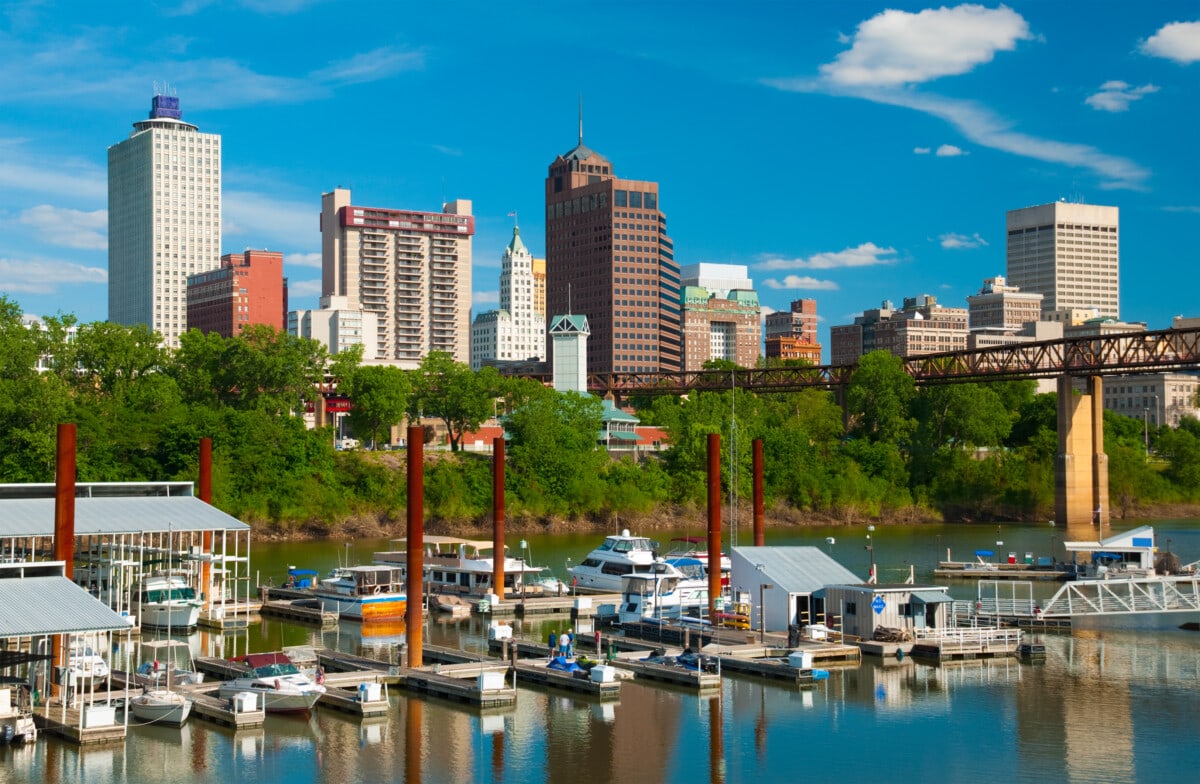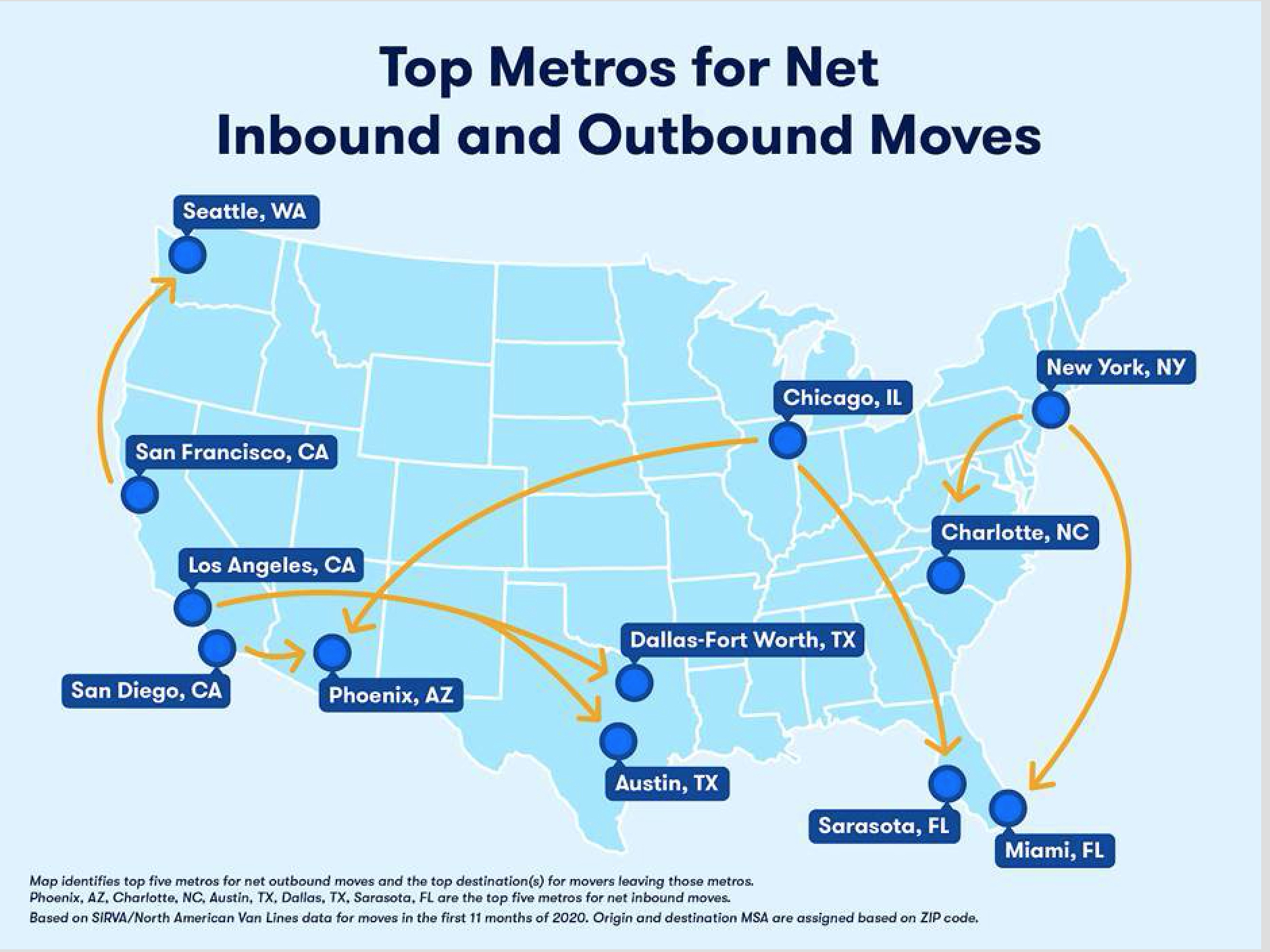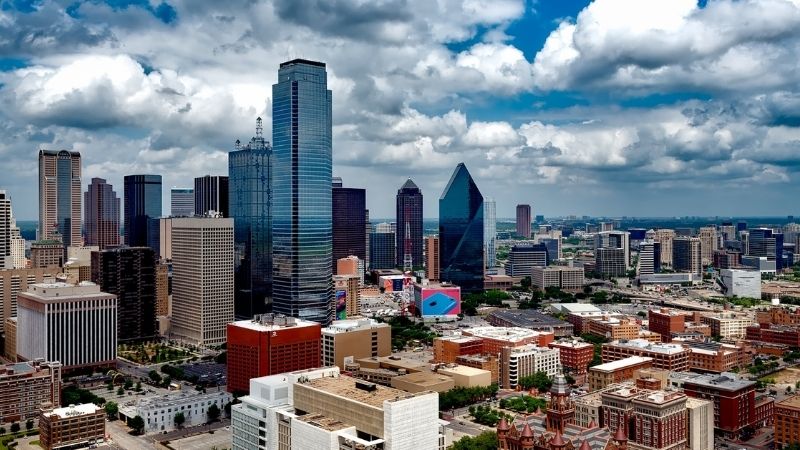Moving From Dallas To Memphis
When considering a move from Dallas to Memphis, it's essential to weigh the pros and cons of each city. While Dallas offers a thriving economy, diverse cultural scene, and modern amenities, Memphis provides a unique blend of Southern charm, rich history, and a lower cost of living. Located in the heart of the South, Memphis boasts a vibrant music scene, delicious barbecue, and a strong sense of community. If you're thinking of making the switch, this guide will provide you with valuable insights into what to expect, from housing and job markets to lifestyle and cultural differences.

Planning Your Move from Dallas to Memphis: What You Need to Know
Moving from Dallas to Memphis can be a significant change, especially considering the two cities have different cultures, economies, and lifestyles. To ensure a smooth transition, it's essential to plan and research thoroughly. Here's a comprehensive guide to help you navigate the process:
Understanding the Cost of Living in Memphis
The cost of living in Memphis is generally lower compared to Dallas. Housing, in particular, is more affordable, with the median home price in Memphis being around $140,000, whereas in Dallas, it's around $240,000. Additionally, Memphis has lower sales taxes, which can result in significant savings. However, it's crucial to consider other factors such as food, transportation, and healthcare costs when calculating the overall cost of living.
Job Opportunities and Industry Trends in Memphis
Memphis has a diverse economy, with major industries in logistics, healthcare, and tourism. The city is home to FedEx's global headquarters, which provides a significant number of job opportunities. Other major employers include St. Jude Children's Research Hospital, Methodist Le Bonheur Healthcare, and the City of Memphis. When considering a move, research the job market in your field and network with professionals in your industry.
Comparing Neighborhoods in Memphis
Memphis has a range of neighborhoods, each with its unique character and advantages. Some popular areas for families and young professionals include: Cooper-Young: Known for its vibrant atmosphere, eclectic shops, and restaurants. Midtown: A diverse neighborhood with a mix of old and new homes, close to downtown Memphis. East Memphis: An affluent area with upscale neighborhoods and easy access to shopping centers. Research neighborhoods thoroughly to find the best fit for your lifestyle and budget.
Education and Family-Friendly Activities in Memphis
Memphis has a range of educational institutions, including the University of Memphis, Rhodes College, and Christian Brothers University. For families, Memphis offers a variety of activities, such as: The Memphis Zoo: Home to over 3,500 animals from around the world. The Children's Museum of Memphis: A interactive museum with hands-on exhibits. Shelby Farms Park: A 4,500-acre park with hiking trails, lakes, and picnic areas.
Tips for a Stress-Free Move
To ensure a smooth relocation, consider the following tips: Start early: Begin planning your move at least 8 weeks in advance. Downsize: Sort through your belongings and donate or sell items you no longer need. Label and organize: Clearly label boxes and keep an inventory of your items. Hire professionals: Consider hiring a reputable moving company to reduce stress and save time.
| Category | Dallas | Memphis |
|---|---|---|
| Median Home Price | $240,000 | $140,000 |
| Sales Tax Rate | 8.25% | 7.25% |
| Unemployment Rate | 3.4% | 4.1% |
Is Memphis a good place to move to?

Memphis, Tennessee, is a city with a rich history, cultural attractions, and a low cost of living. While it has its pros and cons, Memphis can be a good place to move to, depending on an individual's preferences and priorities.
Pros of Living in Memphis
Memphis offers several advantages that make it an attractive place to live. Here are some of the key benefits:
- Affordable cost of living: Memphis has a lower cost of living compared to other major cities in the United States. The median home price is around $140,000, and the overall cost of living index is 87.3, which is 12.7% lower than the national average.
- Rich music heritage: Memphis is known as the Birthplace of Rock 'n' Roll and is home to legendary music venues like Sun Studio and Beale Street. The city also hosts several music festivals throughout the year, including the Memphis in May festival.
- Outdoor recreational activities: Memphis has over 200 parks and green spaces, including the 4,500-acre Shelby Farms Park, which offers hiking, biking, and horseback riding trails, as well as a lake and several playgrounds.
Cons of Living in Memphis
While Memphis has its advantages, it also has some drawbacks to consider. Here are some of the key cons:
- High crime rate: Memphis has a higher crime rate compared to other cities of similar size. In 2020, the city reported 754 violent crimes per 100,000 residents, which is higher than the national average.
- Traffic and congestion: Memphis is known for its traffic and congestion, particularly during rush hour. The city is also prone to flooding, which can make commuting challenging during heavy rainfall.
- Limited job opportunities: While Memphis has a growing economy, job opportunities may be limited in certain industries. The city's unemployment rate is higher than the national average, and wages are generally lower than in other major cities.
Things to Consider Before Moving to Memphis
Before making the decision to move to Memphis, here are some key factors to consider:
- Neighborhood selection: Memphis has a range of neighborhoods to choose from, each with its unique character and advantages. Research different neighborhoods to find one that fits your lifestyle and budget.
- Job opportunities and career growth: If you have a job lined up in Memphis, research the company and the industry to ensure there are opportunities for career growth and advancement.
- Cultural and recreational activities: Memphis has a rich cultural scene, but it may not offer the same level of diversity as larger cities. Consider whether the city's cultural and recreational activities align with your interests and preferences.
Where are most people moving from to Dallas?

Most people moving to Dallas are coming from other major metropolitan areas in the United States, drawn by the city's strong job market, diverse economy, and high quality of life. According to data from the United States Census Bureau, the top five cities that people are moving from to Dallas are:
Top Cities for Domestic Migration to Dallas
The majority of people moving to Dallas are coming from other cities within the United States. Here are the top five cities for domestic migration to Dallas:
- Los Angeles, California: Many people are leaving the high cost of living and traffic congestion of Los Angeles for the more affordable and laid-back lifestyle of Dallas.
- New York City, New York: The high cost of living and fast-paced lifestyle of New York City are driving some people to seek out the more relaxed and affordable environment of Dallas.
- Chicago, Illinois: People are moving from Chicago to Dallas for the warmer climate, lower cost of living, and more job opportunities in industries such as technology and healthcare.
- San Francisco, California: The high cost of living and competitive job market in San Francisco are driving some people to seek out the more affordable and diverse economy of Dallas.
- Washington, D.C.: Some people are moving from the nation's capital to Dallas for the more relaxed pace of life, lower cost of living, and greater job opportunities in industries such as technology and energy.
Why People Are Moving to Dallas
People are moving to Dallas for a variety of reasons, including:
- Job opportunities: Dallas has a strong and diverse economy, with major industries including technology, healthcare, energy, and finance.
- Affordable cost of living: The cost of living in Dallas is lower than in many other major cities in the United States, making it an attractive option for people looking to relocate.
- High quality of life: Dallas offers a high quality of life, with a thriving cultural scene, diverse neighborhoods, and plenty of outdoor recreational activities.
Demographics of People Moving to Dallas
The demographics of people moving to Dallas are diverse, but some common traits include:
- Young professionals: Many young professionals are moving to Dallas for job opportunities and the city's vibrant cultural scene.
- Families: Families are also moving to Dallas for the city's high quality of life, good schools, and affordable cost of living.
- Retirees: Some retirees are moving to Dallas for the city's warm climate, affordable cost of living, and abundance of outdoor recreational activities.
Is Dallas a desirable place to live?

The question of whether Dallas is a desirable place to live is a complex one, with many factors to consider.
Job Opportunities and Economic Growth
Dallas has a thriving economy, with a strong presence of industries such as technology, healthcare, and finance. The city is home to many major corporations, including AT&T, ExxonMobil, and American Airlines, providing a wide range of job opportunities. The Dallas-Fort Worth metroplex is also a hub for startups, with many incubators and accelerators supporting entrepreneurship. Additionally, the city has a relatively low cost of living and a low unemployment rate, making it an attractive option for those looking to relocate.
Some of the key industries driving economic growth in Dallas include:
- Technology: With a growing presence of tech giants and startups, Dallas is becoming a major hub for tech talent.
- Healthcare: The city is home to many top-ranked hospitals and medical research institutions, making it a hub for healthcare professionals.
- Logistics and Distribution: Dallas's central location and transportation infrastructure make it an ideal location for companies involved in logistics and distribution.
Cultural and Recreational Activities
Dallas has a rich cultural scene, with many world-class museums, galleries, and performance venues. The city is also home to many parks and outdoor recreational areas, including the Katy Trail and White Rock Lake. The Dallas Arboretum and Botanical Garden is a popular destination, featuring beautiful gardens and scenic views of the city. Additionally, the city hosts many festivals and events throughout the year, including the State Fair of Texas and the Dallas Blooms festival.
Some popular cultural and recreational attractions in Dallas include:
- The Sixth Floor Museum at Dealey Plaza: A museum dedicated to the life and legacy of President John F. Kennedy.
- The Dallas Museum of Art: A world-class art museum featuring a collection of over 24,000 works of art.
- Klyde Warren Park: A 17-acre park in downtown Dallas featuring outdoor concerts, festivals, and recreational activities.
Quality of Life and Education
Dallas has a high quality of life, with a diverse range of neighborhoods and communities to choose from. The city is also home to many top-ranked schools and universities, including Southern Methodist University and the University of Texas at Dallas. Additionally, the city has a relatively low crime rate and a strong sense of community, making it a great option for families.
Some of the key factors contributing to the quality of life in Dallas include:
- Diverse neighborhoods: From trendy areas like Uptown and Deep Ellum to family-friendly neighborhoods like Plano and Frisco, there's a community for everyone in Dallas.
- Top-ranked schools: Many of the city's schools and universities are highly rated, providing access to quality education for residents.
- Low crime rate: Compared to other major cities in the US, Dallas has a relatively low crime rate, making it a safe place to live and raise a family.
What cities are between Memphis and Dallas?
The cities between Memphis and Dallas are situated in the southern United States, primarily in the states of Tennessee, Arkansas, and Texas. Some of the notable cities along this route include:
Cities in Tennessee
When traveling from Memphis to Dallas, you'll pass through several cities in Tennessee, including:
- Jackson, known for its rich musical heritage and the Casey Jones Home and Railroad Museum.
- Brownsville, featuring the West Tennessee Delta Heritage Center and the Tina Turner Museum.
- Paris, home to the Eiffel Tower Replica, a 60-foot-tall structure inspired by the iconic Parisian landmark.
Cities in Arkansas
As you enter Arkansas, you'll encounter:
- Jonesboro, a city with a strong agricultural heritage and the Arkansas State University campus.
- Walnut Ridge, known for its Beatles-themed attractions, including the Beatles Park and the Guitar Walk of Fame.
- Newport, featuring the Jacksonport State Park and the Newport Historic District.
Cities in Texas
Finally, in Texas, you'll pass through:
- <strong_MOUNT PLEASANT_, a city with a rich history, including the Mount Pleasant Historic District and the Titus County Courthouse.
- Sulphur Springs, home to the Sulphur Springs Historic District and the Hopkins County Courthouse.
- <strong_Greenville_, featuring the Greenville Historic District and the Audie Murphy American Cotton Museum.
FAQ
What is the average cost of moving from Dallas to Memphis?
The average cost of moving from Dallas to Memphis can vary greatly depending on several factors such as the size of your household, the distance, and the type of moving services you require. However, on average, the cost of a long-distance move from Dallas to Memphis can range from $2,000 to $5,000 or more. This estimate includes the cost of hiring professional movers, renting a moving truck, and purchasing packing supplies. It's essential to get quotes from several moving companies to compare prices and find the best deal for your budget.
How long does it take to drive from Dallas to Memphis?
The driving distance from Dallas, TX to Memphis, TN is approximately 770 miles, and the driving time can vary depending on several factors such as traffic, road conditions, and the number of stops you make along the way. On average, the drive can take around 11-12 hours, assuming you drive non-stop. However, it's recommended to break up the journey into two days, with an overnight stop in a city like Little Rock, AR or Nashville, TN. This will help you avoid driver fatigue and make the journey more comfortable.
What are some popular neighborhoods to live in Memphis?
Memphis is a vibrant city with a rich history and culture, and it offers a range of neighborhoods to suit different lifestyles and budgets. Some popular neighborhoods to live in Memphis include Cooper-Young, known for its trendy bars and restaurants, Midtown, which is a hub for artists and musicians, and Germantown, a suburban neighborhood with a strong sense of community. Other popular neighborhoods include Downtown Memphis, East Memphis, and Collierville. When choosing a neighborhood, consider factors such as commute time, school districts, and access to amenities like parks and grocery stores.
What are some things I should know about Memphis before I move?
Before making the move from Dallas to Memphis, there are several things you should know about the city. Firstly, Memphis is known for its rich musical heritage, and you'll find a range of music venues and festivals throughout the year. The city is also famous for its barbecue, and you'll find plenty of restaurants serving up delicious ribs and BBQ. Additionally, Memphis has a humid subtropical climate, with hot summers and mild winters, so be prepared for the change in weather. Finally, the city has a strong sense of community, with many neighborhood events and volunteer opportunities available. Researching these aspects of Memphis will help you prepare for your move and make the most of your new city.